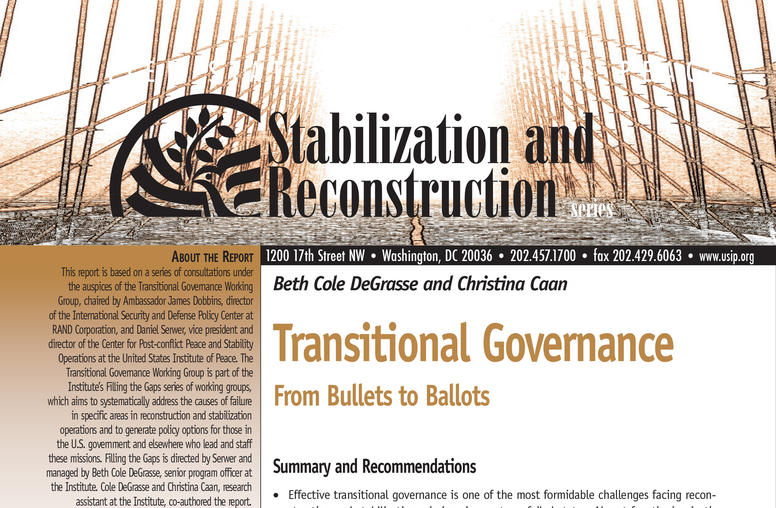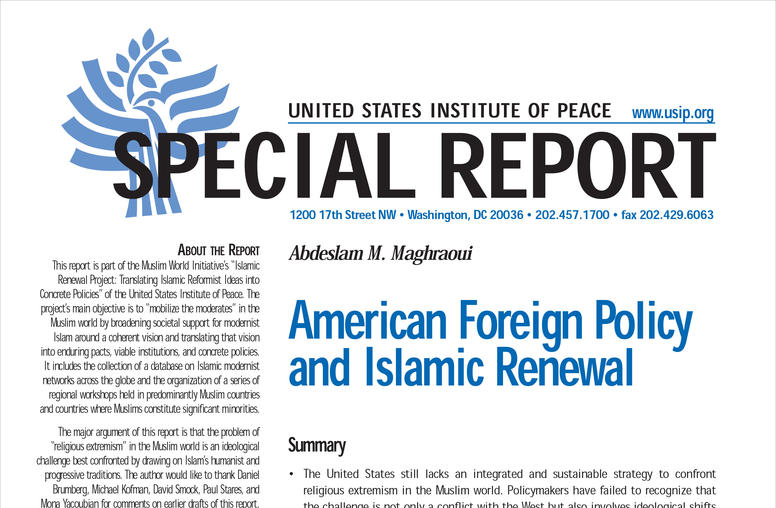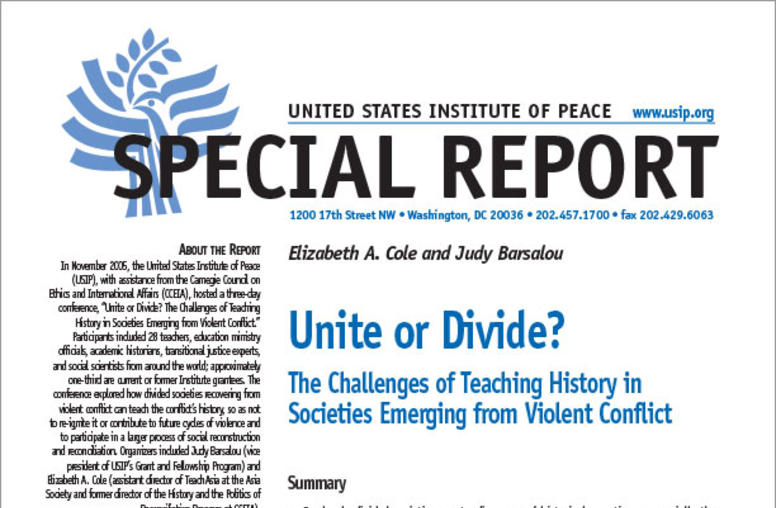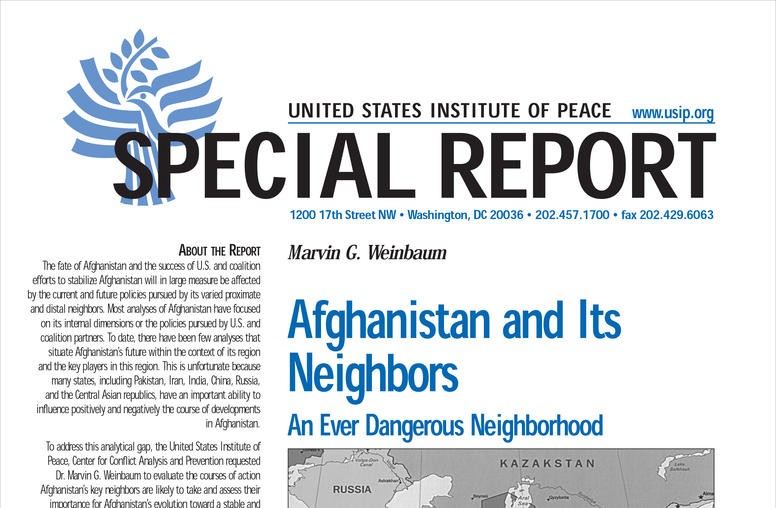Publications
Articles, publications, books, tools and multimedia features from the U.S. Institute of Peace provide the latest news, analysis, research findings, practitioner guides and reports, all related to the conflict zones and issues that are at the center of the Institute’s work to prevent and reduce violent conflict.
American Foreign Policy and Islamic Renewal (Arabic Edition)
Summary The United States still lacks an integrated and sustainable strategy to confront religious extremism in the Muslim world. Policymakers have failed to recognize that the challenge is not only a conflict with the West but also involves ideological shifts within the Muslim world. These shifts have precipitated a major battle for the future of Islam as a faith and a civilization.

Transitional Governance: From Bullets to Ballots
Effective transitional governance is one of the most formidable challenges facing reconstruction and stabilization missions in war-torn, failed states. How can these states secure lasting peace without institutions of governance, accountable leaders, and support of the governed?

American Foreign Policy and Islamic Renewal
The single most important initiative the United States can take to combat Islamist extremism is to support "Islamic renewal," a diffuse but growing social, political, and intellectual movement whose goal is profound reform of Muslim societies and polities.

Unite or Divide? The Challenges of Teaching History in Societies Emerging from Violent Conflict
In deeply divided societies, contending groups' historical narratives are intimately connected to their identities and sense of victimization. How can they teach history to avoid future cycles of violence?

Afghanistan and Its Neighbors: An Ever Dangerous Neighborhood
The fate of Afghanistan and the success of U.S. and coalition efforts to stabilize Afghanistan will in large measure be affected by the current and future policies pursued by its varied proximate and distal neighbors. Weinbaum evaluates the courses of action Afghanistan's key neighbors are likely to take.
What Do Islamists Really Want?
What is the viability of democractic politics within an Islamic framework? This is a summary of the central themes and questions that emerged during a USIP roundtable discussion with leaders of three moderate Islamist parties from Arab countries, U.S. government officials, scholars, and independent policy analysts.
Whither the Six-Party Talks?
It has been nine months since the fourth round of Six-Party Talks concluded with a joint statement of principles. Unfortunately, that statement now appears to be the high-water mark of the six-party process rather than a baseline for future negotiations.
Economic Empowerment of Women in Iraq: The Way Forward
The international community and Iraqis must focus on a leading economic role for women. Participants discussed the current status of women in Iraq–and the challenges and options for the future–during a series of meetings hosted by USIP in recent months.
Haiti's New Government Faces Historic Dilemmas
Two years after Jean-Bertrand Aristide's ouster by armed revolt, Haiti appears ready to turn a page in its turbulent political history. What is the nature of the challenges Haiti's new leadership will face in governing a country traumatized by chronic violence and instability?
2005-2006 Winning Essay
National First Place Winner Kona L. Shen The Northwest School Seattle, Washington Coordinator: Mr. Jeff Blair Since the dawn of the nuclear age and the subsequent onset of the Cold War, tense arms races have swept the world, threatening global security. Many nations, however, have recognized the danger of global proliferation and chosen to dismantle their nuclear programs.1 While countries such as Brazil and Argentina have dismantled their programs rapidly and successfully, other nuclea...